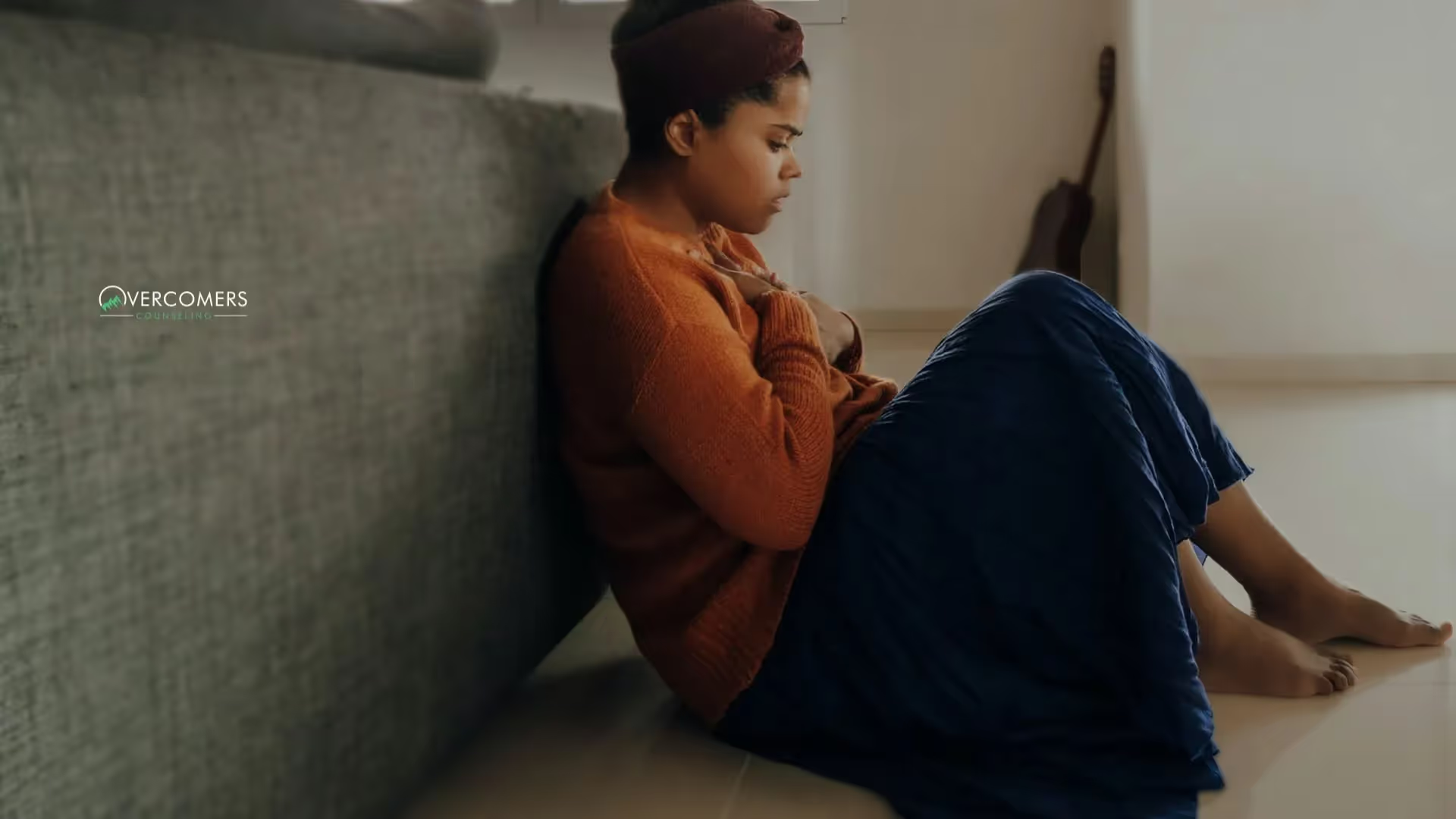Getting diagnosed with cancer is not what anyone sees coming.There are different things that a person who has just been diagnosed with cancer would feel...

Getting diagnosed with cancer is not what anyone sees coming.
There are different things that a person who has just been diagnosed with cancer would feel when they first receive the news.
The grief they would experience is overwhelming, and they would need all the grief support they can get to commence treatment and recover.
There are 5 stages of cancer grief a person diagnosed with cancer goes through.
The first stage is denial that they truly have cancer.
The second stage is anger at themselves, the diagnosis, and maybe the people around them.
The third stage is bargaining and exercising false hope that maybe things could have been different.
The fourth stage of cancer grief is depression.
While the last stage of the stages of cancer grief is an acceptance of the diagnosis.
Below are the 5 stages of cancer grief.
When a person is diagnosed with cancer, their initial reaction is mostly a shock.
This is because no one reasonably expects that this particular hospital visit or routine checkup would lead to a cancer diagnosis.
At first, there is the false hope that there has been some sort of mistake or mixup.
Denial also serves as a form of coping mechanism for difficult and life-altering news.
It's a shock absorber that helps you to cope with the news.
It prevents the person from being overwhelmed with the news and minimizes the impact of the sudden news.
However, denial as one of the stages of cancer grief has 2 effects.
It is either you are in denial of the diagnosis for a short while to be able to grasp everything going on, or you stay in denial for a long time, and you're unable to deal with it effectively.
Either way, steps must be taken to get the person the required treatment.
The family and friends of the person that has been diagnosed with cancer have a major role to play at this stage to ensure that the person does not stay in denial for a long time.
They need to support the person to seek treatment and through the recovery process.
After the stage of denial, the next stages of cancer grief would depend on what you're feeling.
Either anger or depression might come up after this stage.

Anger
Almost everyone diagnosed with cancer goes through the anger stage.
This stage comes after the initial shock and denial begin to wear off.
At this stage, you are asking me questions such as why this happened.
Do I deserve this?
Why is life unfair?
Sometimes, the anger may be directed at the people around you.
This might cause you to lash out or blame them for your grief.
You might also resist their efforts to get treatment.
The feelings of pain and anger are natural and important stages of cancer grief.
Letting yourself feel these emotions is much better because suppressing them is unhealthy.
You can overcome this anger by talking to your family, friends, medical practitioners, or other people who have been diagnosed with cancer to help you deal with it effectively.

Bargaining is another common stage in cancer grief and is a natural reaction to a cancer diagnosis.
What most people do at this stage is exercise false hope that maybe the situation can or would change.
This stage is often accompanied by guilt and what-ifs questions.
What if I had carried out more regular checkups?
What if I had gone to the hospital sooner?
Or how I could have done better or what I could have done differently.
Rather than confront the diagnosis and seek treatment, you may find yourself trying to negotiate to get out of the situation for a better alternative.
For instance, a person can go on a donation spree in the hopes that it will undo or mitigate the diagnosis.
You may also be bargaining and hoping that a lifestyle or dietary change would improve things.
Most people usually eventually snap out of this stage, like other stages of cancer grief.
The news of a cancer diagnosis understandably comes with sadness or depression.
You might be crying a lot, having mood swings, and having trouble sleeping, eating, or doing anything.
You may lose interest in many things that you do naturally and withdraw from activities and interactions with people.
You may not feel like being around people, feel like talking, you might feel numb, and experience feelings of hopelessness.
All of these are things you would understandably feel when you are in the depression stages of cancer grief.
Unfortunately, they could negatively affect your relationships and may even lead to losing a job or other great opportunities.
During this stage, regardless of how the person feels or reacts to everyone around, they need as much love, help, and support as they can.
Family and friends must come around to support and encourage the person.
This is because they might isolate themselves and resist help because they feel depressed.
And this is totally normal.
However, this is not helpful for them because they might slip into a more severe stage of depression.
Professional counseling and grief therapy are ways to deal with the sadness and depression that comes with cancer grief.
Acceptance is the last stage of cancer grief.
This does not mean that the person is okay with the diagnosis.
It only means that the person has accepted the cancer diagnosis at this stage.
At this stage, the fog of despair starts to lift, and they may start to engage with their families and friends again.
Acceptance is, however, not the absence of grief.
It means that the person realizes there is an existing health challenge.
They are okay with their new reality and will now take steps to get treatment.
And it means they would have their bad days or days where they would be experiencing the other stages of cancer grief.
However, this would not stop them from taking steps to recover.
They might even join a support group so that they can engage others who have similar experiences.
Many people would not experience the 5 stages of cancer grief in a particular order.
And some people may not experience all 5 stages.
Each person's experience is unique.
No one ever knows how to deal with a cancer diagnosis.
You need support for grief while you go through the denial, anger, bargaining, depression, and acceptance stages of cancer grief.
https://health.choc.org/dealing-with-a-cancer-diagnosis/
https://musicbeatscancer.org/the-five-emotional-stages-of-dealing-with-a-cancer-diagnosis/
https://waroncancer.com/news/stages-of-grief-denial-and-anger-during-cancer/
https://www.thecancerspecialist.com/2020/10/24/the-5-stages-of-grief/
https://prma-enhance.com/breast-reconstruction-blog/the-five-stages-of-cancer-grief/
Complicated grief, also known as prolonged grief disorder, is when intense grief symptoms continue for an extended period, often longer than six months. This type of grief can result in difficulty resuming normal life activities and can lead to sleep problems.
Grief can seem worse in the morning as the reality of the loss is often one of the first thoughts upon waking. This can be particularly true if you shared many mornings with the person who has passed away during wonderful years spent together.
There is no set timeline for overcoming a breakup. Everyone deals with grief in their own way and on their own time. While some may be able to move forward quickly, others may take longer. Remember that it's normal to experience a range of emotions as you heal and don't rush the process.
Grief can be particularly intense in the early days following a loss. However, it's not uncommon for grief to become more pronounced at certain times, like at night or in the morning. This can be due to the mind being busy processing the events that happened.
If you find yourself having difficulty managing daily activities due to lingering feelings associated with grief such as sadness, anger, guilt or numbness; then it might be beneficial for you to seek professional help through our Colorado Springs Grief Counseling services. Our therapists are trained in helping clients identify their needs and goals related to grieving.
There are a variety of symptoms that can be associated with grief in the elderly. Some common physical symptoms include fatigue, changes in appetite, and difficulty sleeping. Emotional symptoms can include sadness, anger, anxiety, and guilt. It's also common for those who are grieving to withdraw from social activities and lose interest in hobbies or activities they once enjoyed.